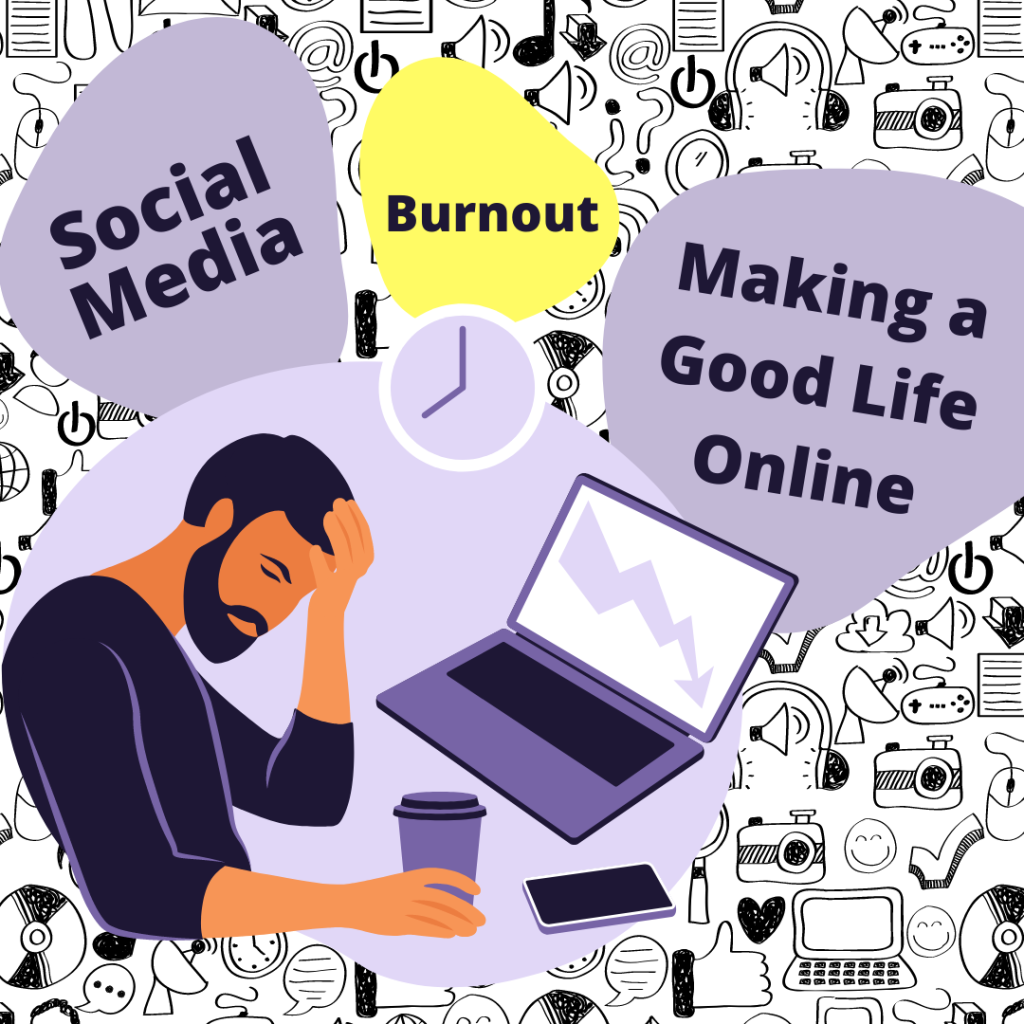Social Media, Burnout, and Making a Good Life Online

A quick browse through my feed on any of the major social media platforms is a plunge into a chaotic, incoherent, and dizzying stream of content. An acquaintance grieving the loss of a loved one. Vacation pics from far-off places. Arguments for and against public health protections and posturing about the latest developments in culture wars. I ask myself: why am I even here?
There is nothing online that cannot be redesigned. Often what seems like a mistake is intentional. My biggest criticism of most social networks is the collapse of different social spheres into one. On social media, I’m connected to close family members, people who share some genes with me whom I’ve never met, close friends who I miss dearly, more distant friends whom I’m grateful to stay in contact with, acquaintances who never sparked much interest beyond polite conversation, people I met once or twice during travels for work and pleasure, and professional contacts, some of whom I interact with regularly and others who are more distant but still important. These spheres are designed to mix on most platforms and maintaining boundaries in the virtual realm is tedious and fraught with pitfalls. The put-it-all-out-there mode of interaction, which is driven mainly by platforms’ need to take all our data and monetize it while playing with our psychological urges to stay connected and be seen and heard, makes it an unsatisfying experience, to put it mildly.
Before the pandemic, I was beginning to wonder if I should cut back or be more strategic about where I invested my time online. As life online became even more important during the pandemic, I began to seriously reconsider who, how, and when I wanted to be connected. The answer, in general, was: less frequently, more focused on communities of purpose, and only when my role and contributions would be clear.
What is fulfilling to me is connection, mutual understanding, common purpose, and feeling part of a community. At the EFA, I’ve found this by becoming a member of the Board of Governors, participating in the Strategic Planning Task Force, and participating in the Diversity Initiative.
At the January 22 EFA Diversity Initiative meeting, I led a discussion about burnout, believing that one way we could help one another would be to share our experiences with burnout and recovery. We began the discussion by reviewing highlights from a Healthline article about burnout recovery strategies. A snap poll revealed varying levels of burnout among the attendees with some self-reporting a very high level. We talked about how to recognize burnout, what steps we had taken to try to address it, how to cope with things beyond our control, and how we had asked for help.
It was an honest, empathetic, and raw conversation. Professional environments have come a long way during my career in recognizing that each of us is a whole person and working on our challenges requires more than a professional set of tools; it also requires taking care of ourselves physically and emotionally. The interaction was exactly what I’d been looking for: it was energizing and illuminating, and I came away feeling more connected to my colleagues.
I heard from many members afterward who had positive feedback on the discussion. Some of this, I believe, arose simply from the opportunity to be seen and heard and some from learning valuable tips for recovering from burnout that they can now put into action. I hope every EFA member will find these tips helpful.
Tips for burnout recovery
- Recognize the signs of burnout: forgetfulness and difficulty concentrating; diminished pride in your work; losing sight of yourself and your goals; difficulty maintaining relationships and being present with loved ones; frustration and irritability with coworkers; unexplained muscle tension, pain, fatigue, and insomnia
- Prioritize taking care of yourself: balance sufficient sleep, eating well, exercise, and socializing
- Confide in a friend, family member, or colleague; their support can be worth a lot
- Leave behind toxic situations if you can. Some relationships (work, personal, etc.) are harmful; disconnecting or distancing yourself from them can help
- For stressors you can’t change, find ways to build your resilience and cope by being merciful and kind to yourself
- Sometimes you need a break from work. Try meditation, a video game, reading for pleasure, resetting your routine or finding opportunities for spontaneous joy, and volunteering to help others
Cody Sisco, Website Chairperson
EFA Board of Governors

